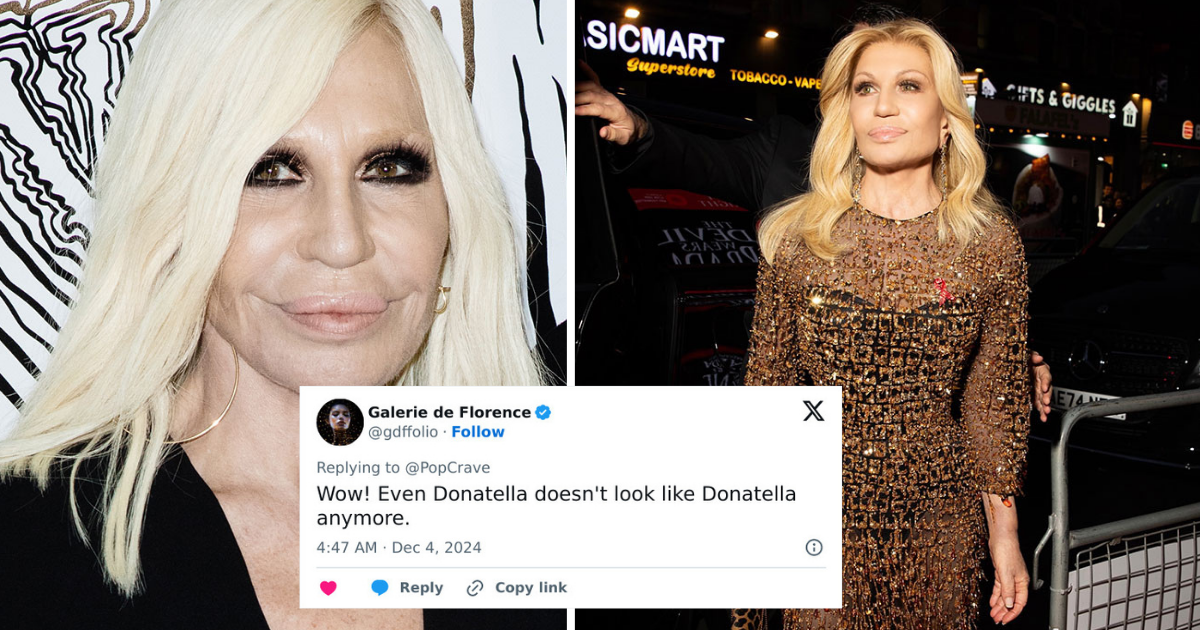Nick Fuentes, a far-right provocateur known for his inflammatory rhetoric, has once again made headlines—this time after his personal information was leaked online. The leak occurred following a controversial tweet where Fuentes wrote, “Your body, my choice, Forever.” a provocative twist on the well-known pro-choice slogan. The statement ignited a firestorm of criticism across social media platforms, and in response, his private address and other sensitive details were widely circulated.

Image credits: Nicholas J. Fuentes
The Fallout from a Provocative Tweet
Fuentes’ tweet sparked outrage, as many saw it as another example of his efforts to provoke, mock, and demean marginalized groups. Known for his incendiary views, Fuentes has repeatedly courted controversy, but this latest statement led to serious real-world consequences. Shortly after his tweet went viral, social media users began sharing his personal information, including his home address, phone number, and other private details, in what appeared to be retaliation for his statement.

Image credits: Nicholas J. Fuentes
Credits: Nicholas J. Fuentes
A Surge in Social Media Backlash
According to recent reports, the backlash to Fuentes’ tweet wasn’t limited to just his personal data leak. There was also a staggering 4,600% spike in mentions of phrases like “your body, my choice” and “get back in the kitchen” across various social media platforms. These phrases have long been associated with s*xist and mis*gynistic sentiments, often employed by trolls seeking to trivialize or mock women’s rights issues. This dramatic increase in usage reflects a broader cultural clash over issues of gender and bodily autonomy, with Fuentes at the center of the storm.
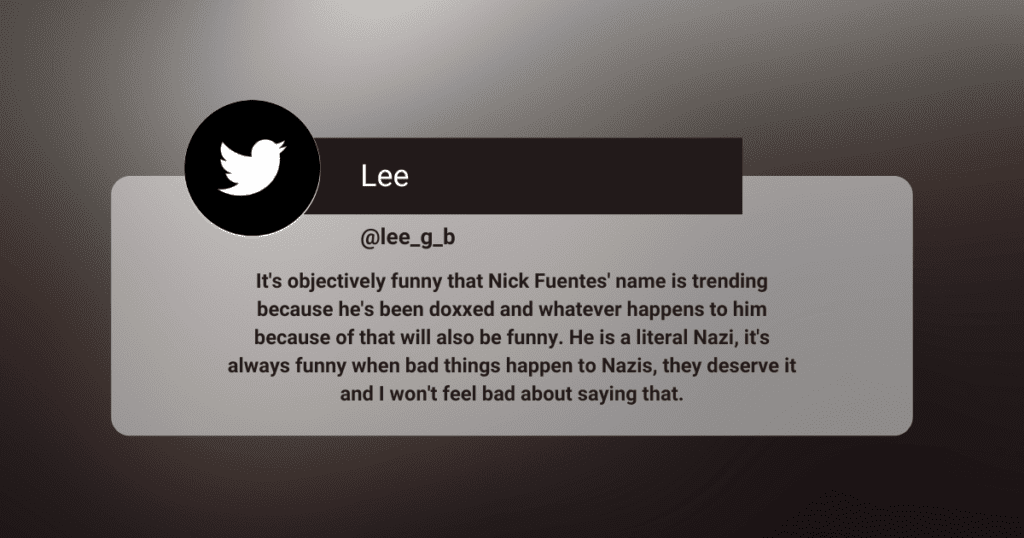
Image Credits: Lee (@lee_g_b)

Image Credits: B. (@brooke_urself22)
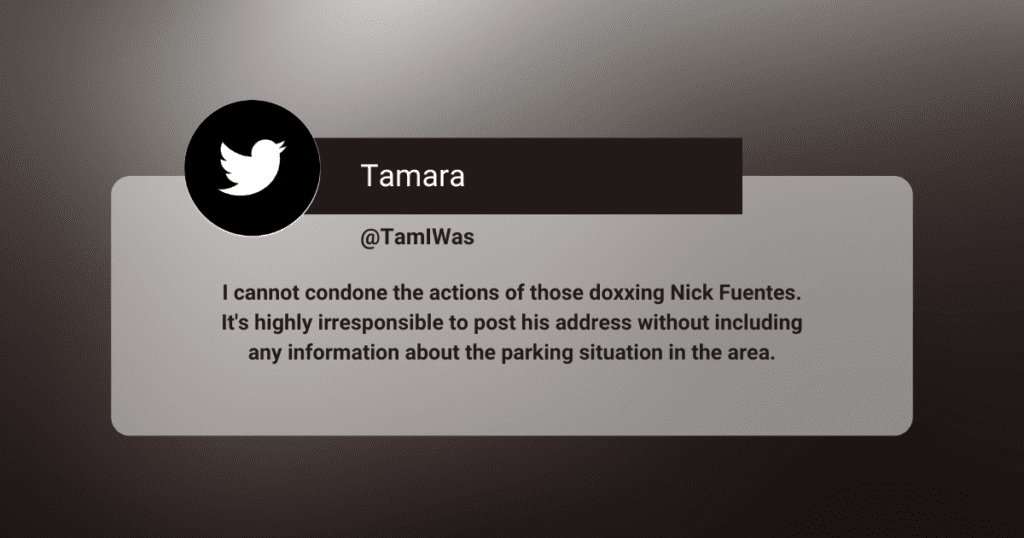
Image Credits: Tamara (@TamIWas)
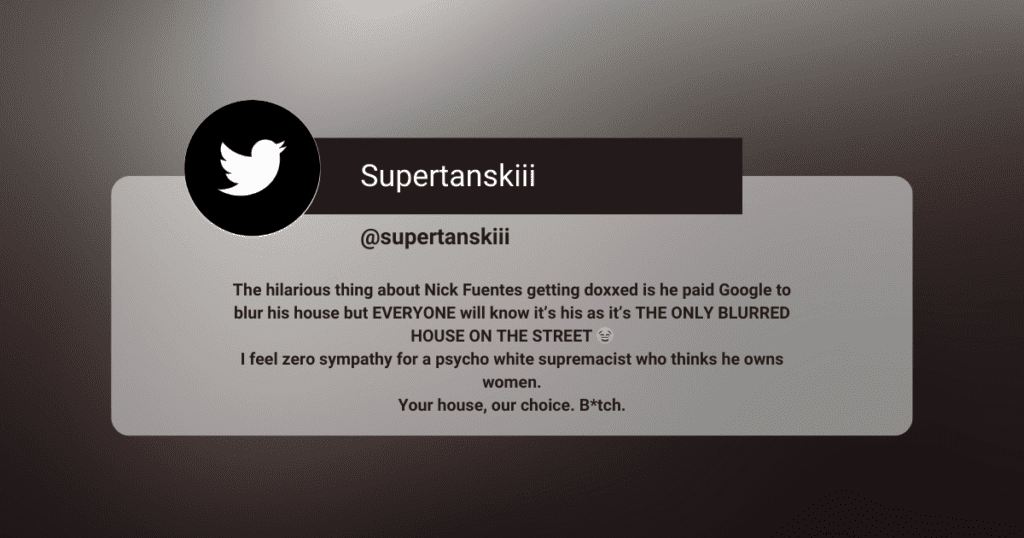
Image Credits: Supertanskiii (@supertanskiii)

Image Credits: Alex (@iLoveDikk)
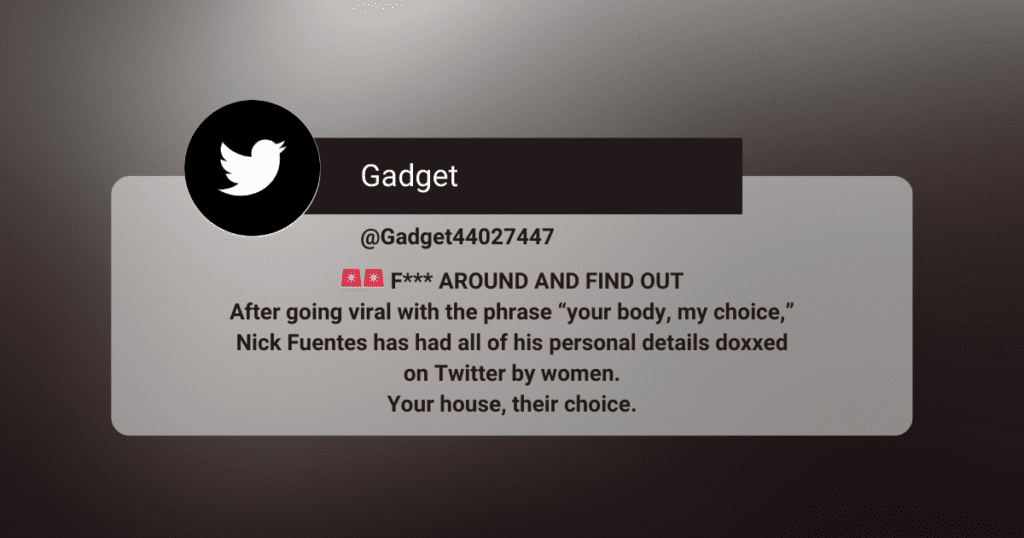
Image Credits: Gadget (@Gadget44027447)
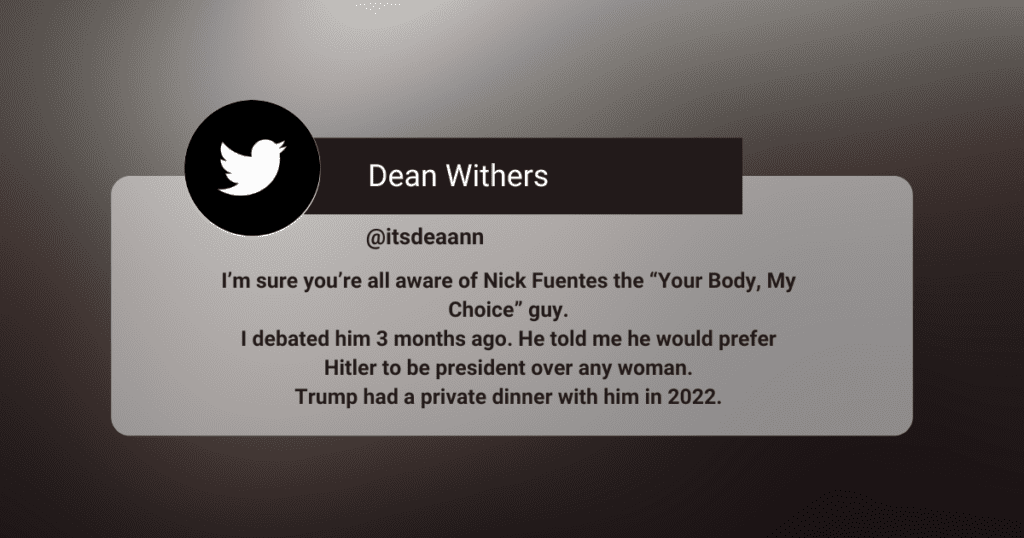
Image Credits: Dean Withers (@itsdeaann)
A History of Extremism
Fuentes is no stranger to controversy. Over the years, the self-described political commentator has built a reputation for his extreme views, including Holocaust denial, anti-immigration rhetoric, and overtly r*cist and s*xist statements. He has frequently used his platform to spread divisive and harmful messages, often targeting minority communities and women. Fuentes’ provocative statements have garnered him a significant following in far-right circles. Still, they have also made him a target of widespread condemnation and de-platforming by major social media companies.

Image credits: NickJFuentes
His recent tweet is just one in a series of inflammatory statements contributing to his growing notoriety. From calling for the end of immigration to openly embracing racist ideologies, Fuentes has become a symbol of the extreme right-wing fringe, with his statements frequently sparking backlash not just online but in real life.

Image credits: Zach D Roberts/NurPhoto via Getty Images

Image credits: NickJFuentes
The Ethics of Doxxing
While Fuentes’ tweet angered many, the public sharing of his personal information has raised ethical questions. Doxxing—publicly revealing someone’s private information without their consent—can lead to dangerous situations, including harassment, threats, and physical harm. In Fuentes’ case, although many see him as a deeply problematic figure, the leak of his data has led some to question whether this kind of response is justified, even for someone with such a controversial history.
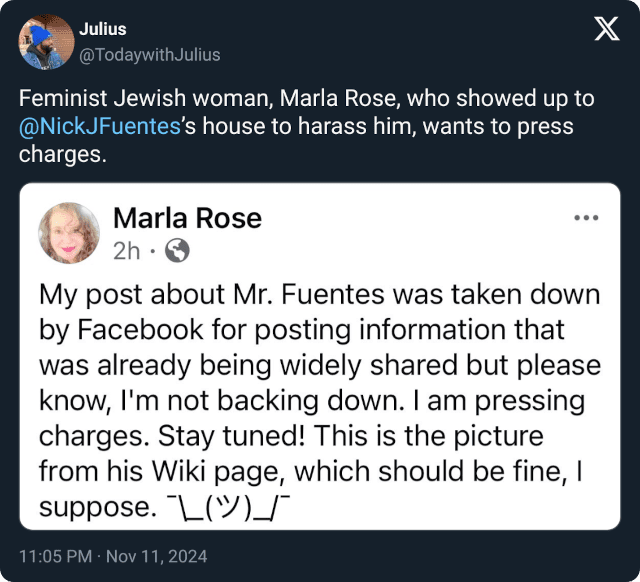
Image Credits: tribune
A Divisive Figure
Nick Fuentes’ latest controversy is part of a larger trend of polarizing political discourse on the internet. While his supporters defend his right to free speech, critics argue that his rhetoric goes beyond the boundaries of acceptable public discourse, spreading hatred and division. The fact that his personal information was leaked is indicative of the high-stakes battles being fought in online spaces over ideological differences.

Image Credits: thedailybeast
For Fuentes, the leak of his data may serve as a wake-up call about the risks of online provocation, but given his history, it is unlikely that he will shy away from further controversy. As social media platforms continue to be battlegrounds for ideological clashes, figures like Fuentes remain central to the debates over free speech, accountability, and the consequences of spreading hate online.


